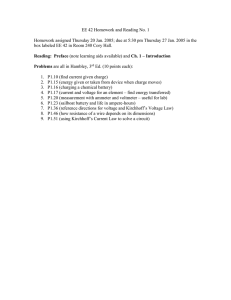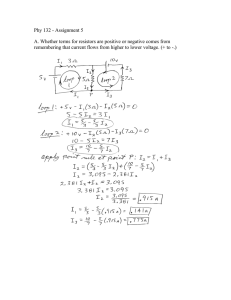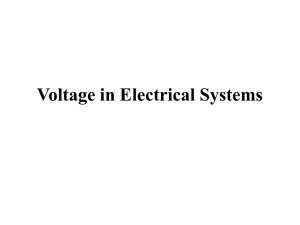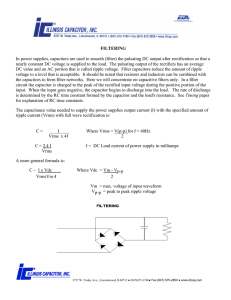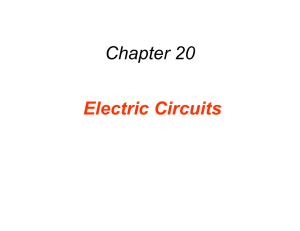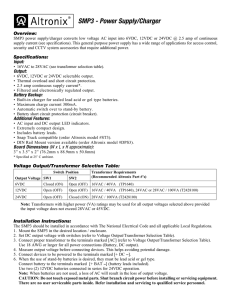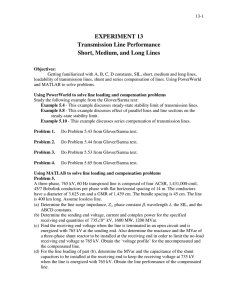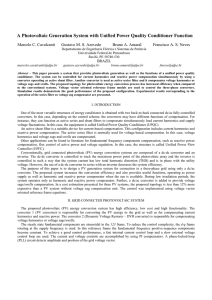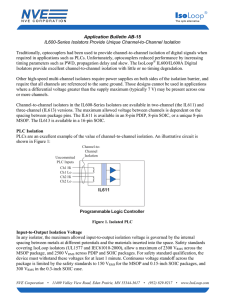Problem Set 7
advertisement
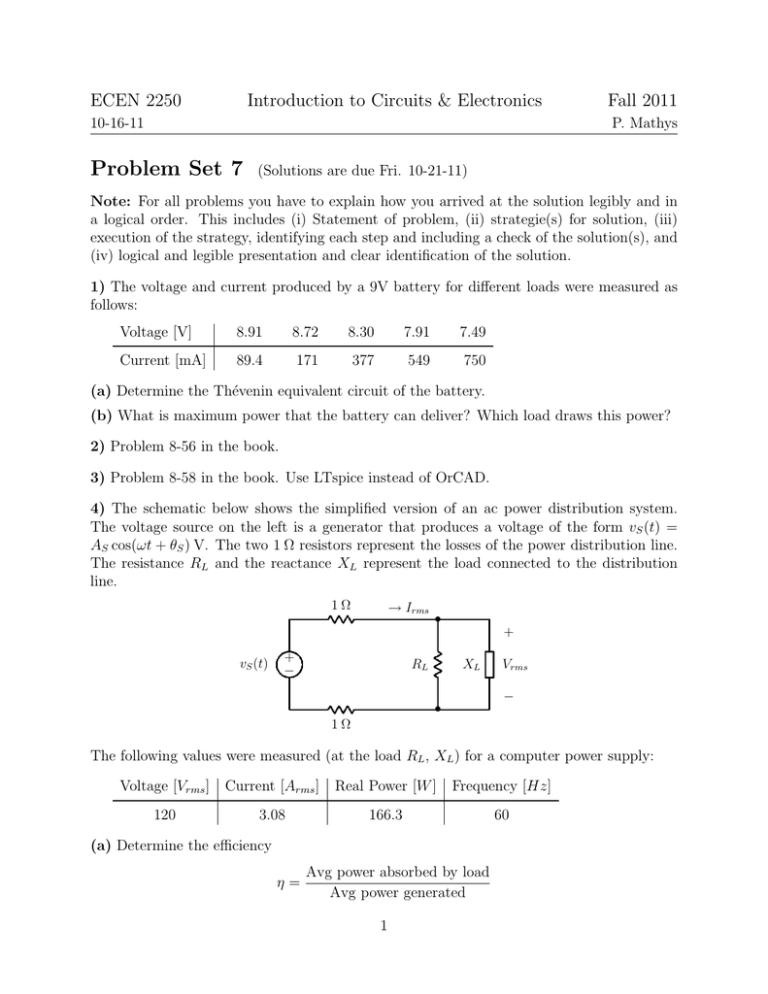
ECEN 2250 Introduction to Circuits & Electronics 10-16-11 Fall 2011 P. Mathys Problem Set 7 (Solutions are due Fri. 10-21-11) Note: For all problems you have to explain how you arrived at the solution legibly and in a logical order. This includes (i) Statement of problem, (ii) strategie(s) for solution, (iii) execution of the strategy, identifying each step and including a check of the solution(s), and (iv) logical and legible presentation and clear identification of the solution. 1) The voltage and current produced by a 9V battery for different loads were measured as follows: Voltage [V] 8.91 8.72 8.30 7.91 7.49 Current [mA] 89.4 171 377 549 750 (a) Determine the Thévenin equivalent circuit of the battery. (b) What is maximum power that the battery can deliver? Which load draws this power? 2) Problem 8-56 in the book. 3) Problem 8-58 in the book. Use LTspice instead of OrCAD. 4) The schematic below shows the simplified version of an ac power distribution system. The voltage source on the left is a generator that produces a voltage of the form vS (t) = AS cos(ωt + θS ) V. The two 1 Ω resistors represent the losses of the power distribution line. The resistance RL and the reactance XL represent the load connected to the distribution line. 1Ω vS (t) → Irms + − • RL + XL − • 1Ω Vrms The following values were measured (at the load RL , XL ) for a computer power supply: Voltage [Vrms ] Current [Arms ] Real Power [W ] Frequency [Hz] 120 3.08 166.3 60 (a) Determine the efficiency η= Avg power absorbed by load Avg power generated 1 of this power distribution system (without power factor compensation at the load). (b) Assume that the load is capacitive. What is the best efficiency η that you can achieve by using power factor compensation at the load? How can this power factor compensation be achieved (show element(s) and the element value(s) to be used). c 2001–2011, P. Mathys. Last revised: 10-16-11, PM. 2
